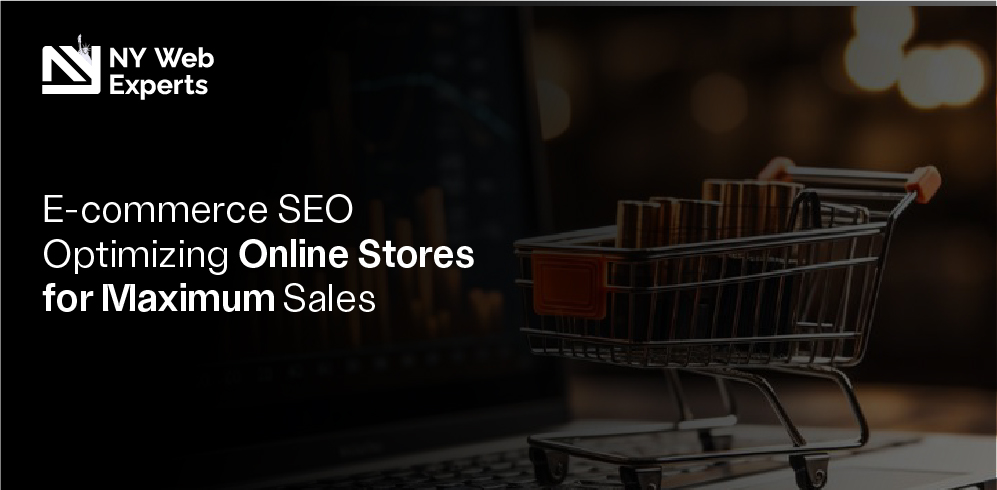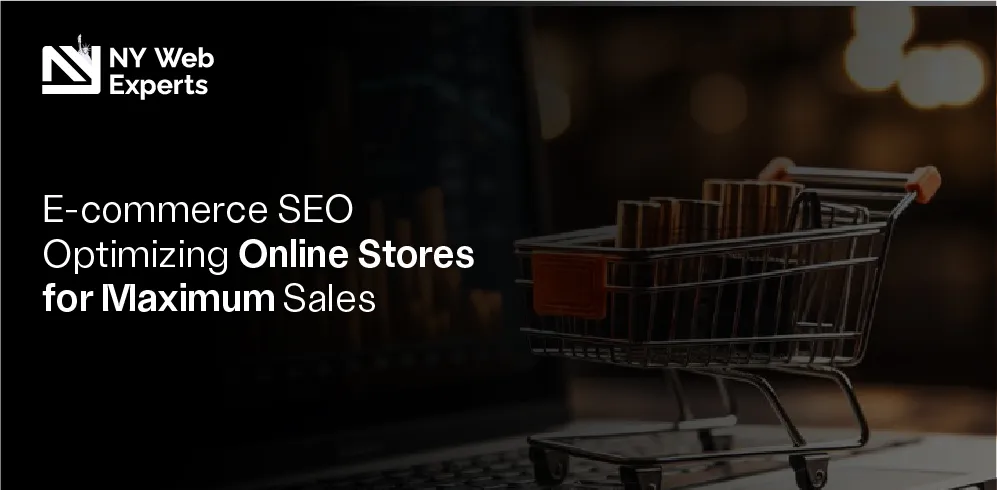
I always say this: if you have an e-commerce store, your website is the main face of your business. To make great engagement and conversions, your website should be ranking at the top of the search engine results page.
Imagine owning a shop tucked away at the end of a quiet street. How many people would find it, let alone make a purchase? Probably not many. The same goes for online stores. If your website ranks at the bottom of search results, chances are, your conversions will be just as low, close to nonexistent.
To make sure this doesn’t happen to you, I’ll explain in this blog why optimizing online stores for maximum sales through smart E-commerce SEO strategies is absolutely essential. Getting your online store live is the easy step; getting it found is challenging.
Introduction to E-commerce SEO
The success of your brand very much depends on optimizing online store for maximum sales. Driving traffic is not enough; you need to drive to the prospects that are ready to convert. Millions of stores are competing for attention, and e-commerce SEO strategies ensure that your product stands out.
Good e-commerce SEO strategies involve smart use of product schema, optimizing meta descriptions with long-tail keywords, and ensuring your site is fast, built with mobile-first indexing in mind. Don’t take SEO lightly; a strong SEO strategy has the power to transform casual visitors into loyal customers.
On-Page SEO Strategies for E-commerce
Here’s a little piece of information for you: whenever there’s a mention of On-page SEO, the first thing that should come to your mind should be: Content. On-page SEO is the optimization and management of content.
Strong on-page SEO is the backbone for optimizing online stores for maximum sales. Every product page, product description, meta description, blogs, and any kind of content should be written by understanding the main goal: higher ranking, engagement, and conversion.
The main factors that I look out for while doing on-page SEO:
- Keyword Rich Descriptions:
Write detailed, keyword-rich meta descriptions for every product and category page.
- Product Schema:
Use product schema to provide structured information like price, availability, and reviews.
- URL Optimization:
Optimize URLs, title tags, headers (H1, H2), and image alt texts, and use bullet points with relevant keywords.
- Value-Adding Content:
Ensure every product page has unique, value-adding, and descriptive content to avoid duplicate content.
- Faster Loading Time:
Design your site and pages for mobile-first indexing by ensuring mobile usability and fast load times.
- Easy Navigation:
Create clean, easy-to-navigate internal linking between categories, products, and informational pages.
The best part about on-page SEO is that it’s totally in your control and lays the foundation for the success of your website’s off-page.
Technical SEO for Online Stores
Now, whenever there’s a mention of Technical SEO, as the name suggests, it means to optimize the technical side of the store, things like page speed, mobile optimization, and easy navigation. When it comes to optimizing online store for maximum sales, technical SEO is what ensures your hard work on design, keywords, and content actually gets seen by the search engine and visitors.
Technical SEO focuses on how well your website is built, crawled, indexed, and displayed in the search engine results page (SERP). For e-commerce, it’s even more critical because you’re dealing with hundreds or thousands of product pages that need to be fast, organized, and easily discoverable.
Here are the factors you should focus on
- Optimize Site Speed:
Compress images and videos, utilize lazy loading to play videos only when clicked on, and enable browser caching to create pages that load quickly - Add Structured Data:
Implement structured data to enhance product visibility in search results and achieve rich snippets.
- Fix Crawl Errors and Broken Links:
Regularly audit your website to solve crawlability issues and fix broken links and buttons.
- Maintain and Submit XML Sitemaps:
Ensure your XML sitemap is updated and submitted to Google Search Console for better indexing.
- Prioritize Mobile Optimization:
Implement Google Accelerated Mobile Pages for mobile optimization
- Secure Your Site with HTTPS:
Use SSL certificates to protect your customers’ data and boost search engine trust.
Mastering technical SEO combined with on-page SEO means your website is well on its way to achieving a higher Google ranking. And if you’re looking to rank your website higher, connect with me at NY Web Experts.
Importance of Mobile Optimization
Have you ever seen people going through an online store using a laptop? Believe me, I haven’t. 72% of all online orders are placed through phones, and this number is expected to reach 87% by 2027. And if mobiles are the primary devices used by people, then mobile optimization is crucial.
Google ranks websites based on user experience and mobile optimization. If your store is not optimized, Google simply won’t rank it higher. To make your website mobile-friendly, you can either technically optimize your website, or a better option is to implement Google Accelerated Mobile Pages (AMP). It will get rid of everything bulky in your website, making it fast and optimized for mobile.
Product Page Optimization Tips
When optimizing online stores for maximum sales, I always focus on clarity, speed, and user experience. I start by using unique, keyword-rich titles that clearly define the product while remaining simple. Then, I make sure every product has a detailed, keyword-optimized product description, not copied and pasted from the manufacturer’s website.
I also optimize meta descriptions to encourage clicks and use compressed, high-quality images with descriptive alt text for better mobile optimization. Making sure my pages load fast and work perfectly with mobile-first indexing helps me stay ahead in both user experience and SEO.
Link Building for E-commerce Websites
As I have mentioned above, the on-page SEO is the backbone of your store’s off-page SEO. When it comes to link building, the most important factor is your content and the value it provides to the visitors.
If your content is engaging, solves a problem that visitors want answers for, and adds value, other websites will link to your content, giving it a vote of confidence that your content is trustworthy.
Google’s search engine sees all these backlinks, interpreting your content as value-adding and ranking your website higher. That’s the power of backlinks. They build trust in the eyes of visitors and search engines.
Future Trends in E-commerce SEO
Optimizing online stores for maximum sales is all about personalization, speed, and smarter data. I see structured data becoming even more important as search engines evolve to deliver richer, more intuitive results.
Voice search, AI-driven product recommendations, and hyper-personalized content will shape how online stores attract and retain customers. Mobile experiences will dominate, making mobile-first indexing and mobile optimization non-negotiable.
And as competition rises, strong e-commerce link-building strategies will remain a top priority. The key is to stay adaptable and continue focusing on what truly matters, user experience and search visibility.
All-In-All
Optimizing an online store for maximum sales is the key to growth. There are millions of stores, and the competition is extremely high in the crowded digital market. From optimizing product pages with structured data to focusing on mobile-first indexing and building strong backlinks, every detail matters.
SEO isn’t just about rankings, it’s about creating a smooth, valuable shopping experience with a single goal: conversions. Invest in strong SEO today, and you’ll build a foundation for consistent traffic, better engagement, and maximum sales.
FAQs
- How can SEO improve my online store’s traffic?
SEO boosts your store’s visibility in search results, driving more targeted and high-converting traffic to your site.
- What are the best SEO tools for e-commerce sites?
Tools like Ahrefs, SEMrush, Google Search Console, and Screaming Frog are excellent for e-commerce SEO analysis and optimization. Some free tools like Keywords Everywhere and Google Keyword Planner are equally good,
- How do product descriptions affect SEO?
Unique, keyword-optimized product descriptions enhance your site’s relevance, help individual products rank, and improve the overall user experience.









